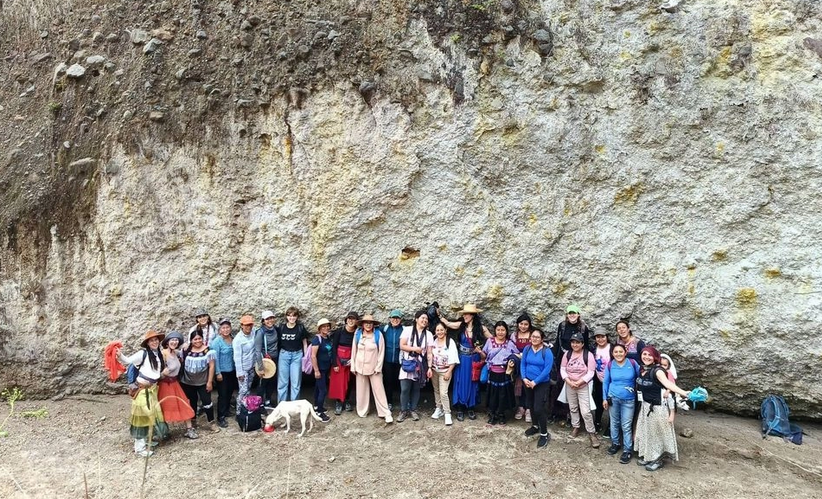
San Cristóbal de las Casas, Chiapas. Members of organizations and collectives from different regions of Chiapas participated in the seventh Assembly of the Women’s Movement in Defense of Mother Earth and Our Territories, in order to seek alternatives to continue defending the territory from megaprojects, monocultures and divisionis
“We maintain a critical attitude towards the situations that occur in our territories in political, economic, social issues and everything that threatens our environment, language and our lives as native people,” they stated in a document released at the end of the meeting held in Chapultenango in recent days.
In exposing their problems by region, they stated that in the Highlands “we face a series of collective pains that affect us deeply. Physical fatigue, bodily pains and the increasing difficulty in integrating ourselves into the collective are just some of the consequences of a capitalist and patriarchal system that wears us down and tears us apart.”
They added that “the sale and consumption of drugs among young people and children generates great concern, especially in schools. The division and lack of respect between people and in the communities aggravate this situation. There is pain for the disappearances of people, for the dispossession of our lands, for the commodification of life and for the criminalization of our youth.”
They expressed that “the State and the patriarchal system provoke rage and despair. We live in a society that normalizes aggression, violence, that conforms and is apathetic in the face of the suffering of others. The narco-State generates a violent culture that permeates the media and communication networks to foster social insensitivity, disconnection with nature and the objectification of bodies. All these aspects hurt us day after day.”
They pointed out that in the north of the state they “continue to face, as collectives, the apathy of the people, the scarce participation in community work, the migration of young people in search of employment, the imposition of large-scale projects such as the superhighway (San Cristóbal-Palenque), and the manipulation of politicians who use our traditional costume and practices for profit.”
In addition, they added, “the high cost of basic services such as electricity, the monoculture of large plantations and the social pressure to accept initiatives that dispossess us of our lands continue to cause suffering.
These pains arise from a system that causes us fear, courage and impotence. The fragmentation of communities, the criminalization of young people, forced disappearances, femicides and the lack of security, especially for women, are the result of a control strategy that does not respect us.
They asserted that in his inauguration on December 8, the governor, Eduardo Ramírez Aguilar, “promised to build a highway and simulates a consultation that does not respect the decision of the people. This shows us his true and devious intentions. In spite of everything, we continue to resist in the defense of our rights as indigenous peoples, in the defense of our land and territory, and in the protection of our natural resources.
In the coastal region, they said, “we share that our pains include insecurity, the rising cost of basic foodstuffs, the disappearance of young people, girls and women, the usurpation of our territories and lands, machismo, the criminalization of our activism, uncertainty and fear. These pains are caused by the dispute of our territories by organized crime, the imposition of a new authorized armed group, Pakal Immediate Reaction Forces (FRIP), large projects such as the Interoceanic and the indifference of a large part of society in the face of these dispossessions.”
They affirmed that “our struggles and resistance in the coastal region are focused on the demand for a fair payment for electricity, on avoiding the installation of water meters that will increase the cost, on denouncing the dispossession and hostility that we live in our territories, and on the defense of our land and ancestral territory.”
The meeting was attended by the Defensoras de Nasakobajk Collective, the Red de Mujeres de la Costa en Rebeldía, Zona Costa, the Tsijilba Bij Collective, Zona Selva Ch’ol y Tseltal, the Nichim Antsetik Collective and the Antsetik Ts’unun Collective.
Original article by Elio Henríquez published in La Jornada on April 7th, 2025.
Translated by Schools for Chiapas.